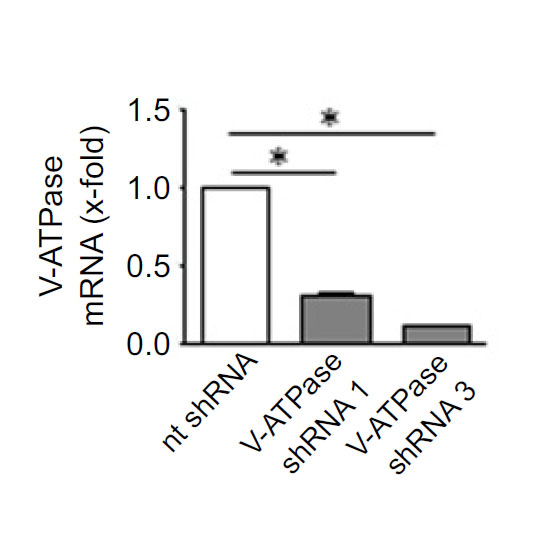Inhibition of the V-ATPase by Archazolid A: A New Strategy to Inhibit EMT
03-Aug-2017
Molecular Cancer Therapeutics, Volume 16, Issue 11, pp. 2329-2339, DOI: https://doi.org/10.1158/1535-7163.MCT-17-0129
Molecular Cancer Therapeutics, online article
Epithelial–mesenchymal transition (EMT) induces tumor-initiating cells (TIC), which account for tumor recurrence, metastasis, and therapeutic resistance. Strategies to interfere with EMT are rare but urgently needed to improve cancer therapy. By using the myxobacterial natural compound Archazolid A as a tool, we elucidate the V-ATPase, a multimeric proton pump that regulates lysosomal acidification, as a crucial player in EMT and identify the inhibition of V-ATPase by Archazolid A as a promising strategy to block EMT. Genetic knockdown and pharmacologic inhibition of the V-ATPase by Archazolid A interfere with the EMT process and inhibit TIC generation, as shown by a reduced formation of mammospheres and decreased cell motility. As an underlying mechanism, V-ATPase inhibition by Archazolid A disturbs the turnover of E-cadherin: Archazolid abrogates E-cadherin loss during EMT by interfering with its internalization and recycling. Our study elucidates V-ATPase as essential player in EMT by regulating E-cadherin turnover. Archazolid A is suggested as a promising therapeutic agent to block EMT and the generation of TICs.











